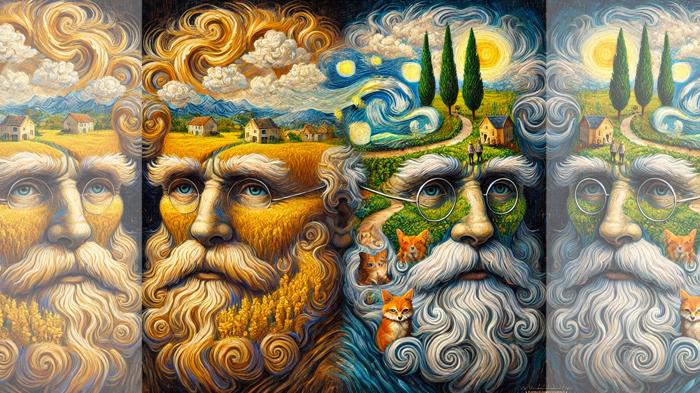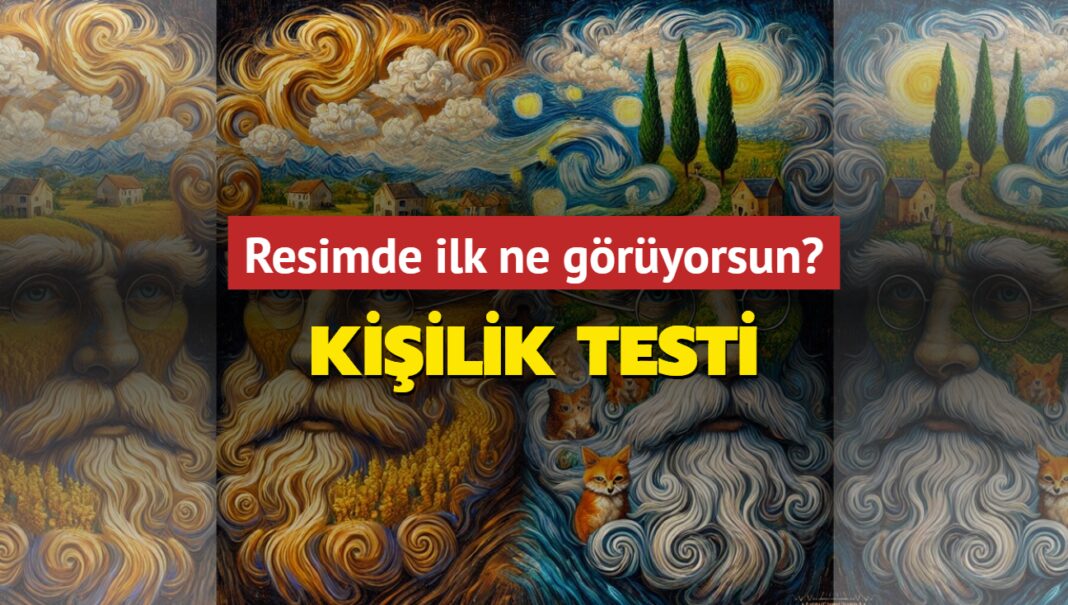Optical illusion tests full of details offer many clues about memory and character. What does a portrait of a imaginary scientist who are hidden in nature and details in the style of Van Gogh? This optical illusion looks like a face from a distance, but when you look closely, people, trees, animals and houses are hidden. What do you see when you first look at the picture?
Optical illusion: What did you see first in the picture?
What we first see in optical illusions is the answer to the questions of whether a human face, nature or animal; It can give some clues about our personal perceptions, character features, memory, cognitive tendencies. However, these interpretations do not provide scientifically final results; It can be considered more within the scope of personality test or fun analysis. Nevertheless, some general inferences can be made on the basis of psychology and perception studies. What do you see first when you look at this optical illusion?

Those who see the first human face in optical illusion
Facial recognition in particular warns the brain, which may indicate that these people are more sensitive to social details. If you see the human face when you first look at the picture, you have a personality that is sensitive to social, empathic, human relations. You may have high emotional intelligence with face recognition skills. Your social memory (remembering people, faces, relationships) is usually strong.
Firstly seeing nature (tree, mountain, landscape)
Generally, such perceptions stand out in personalities with artistic or nature. You have an inward, observer structure that cares about emotional balance. Individuals who can see the big picture and think abstractly generally see the details of nature. You are a strong ability to pay attention to visual memory and environmental details.
First of all seeing animals
Animals usually represent the subconscious; These people can make more intuitive decisions. You have an intuitive, instinctive, creative personality. You are more open to subconscious and symbolic thought. Your sensory memory (smells, sounds, movements) may be stronger.





